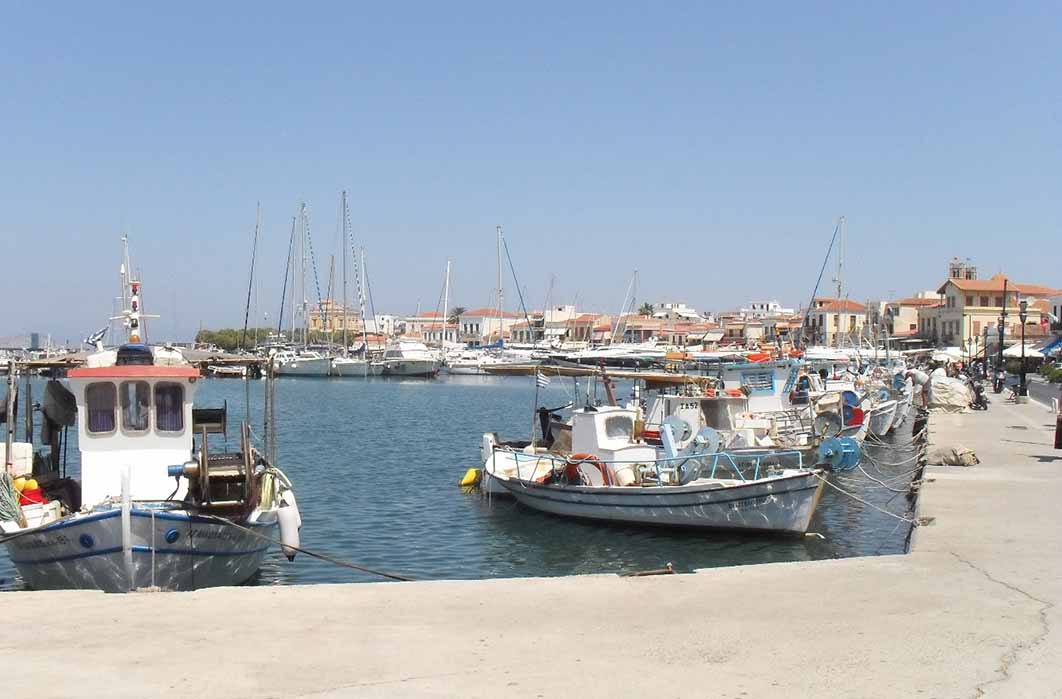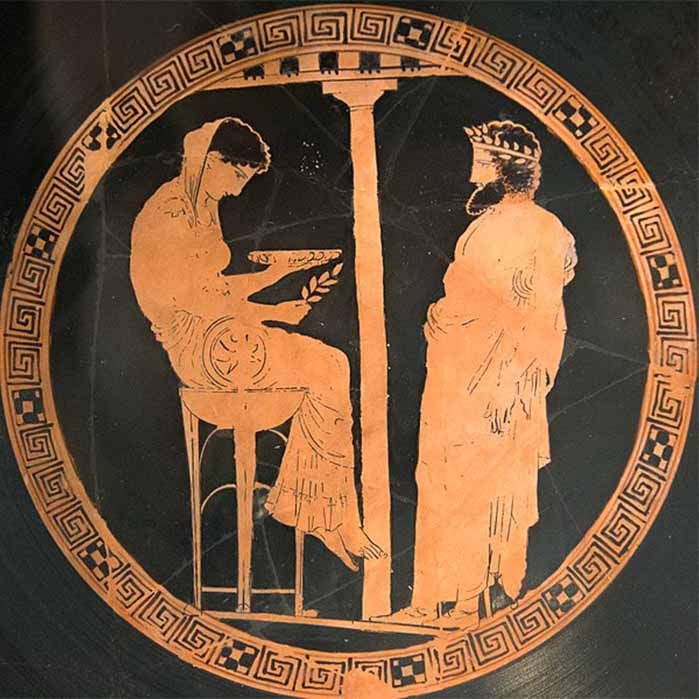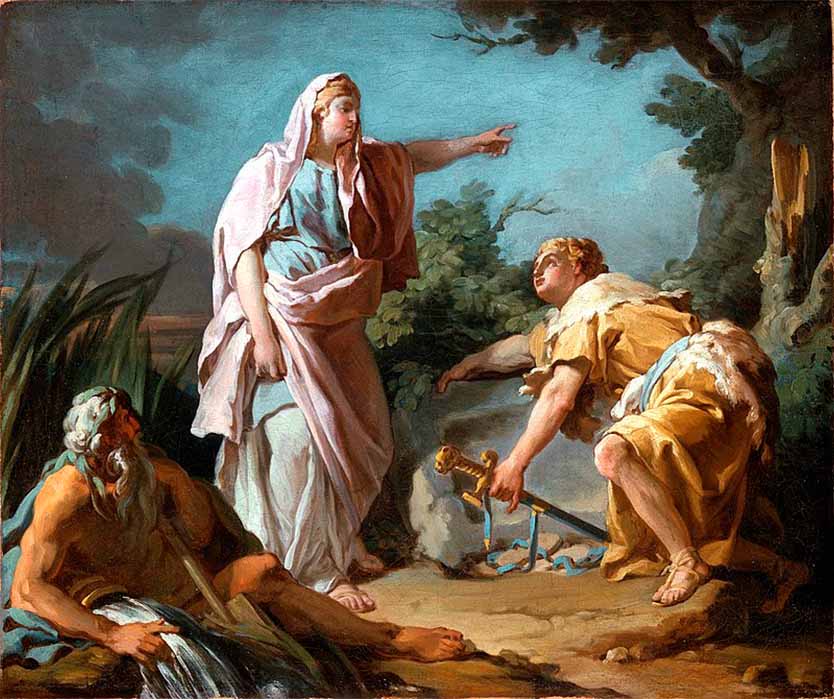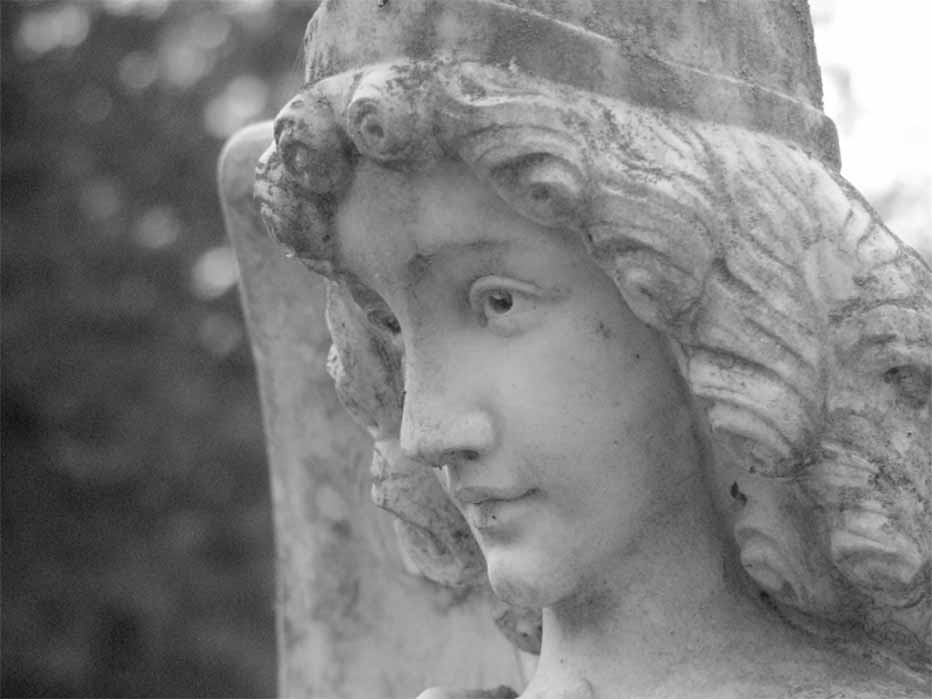
Greece’s Saronic Gulf Islands: Aegina And Salamis, Opposing Alliances
As the temples of the gods dotted the coast of Attica in Greece, so across the horseshoe shaped Saronic Gulf, they also had their temples along the east coast of the Argolis region of the Peloponnese. Saron the third king of the city-state of Troezen, was very fond of hunting, so he built a temple to Saronic Artemis, the goddess of hunt, at the Psifaean Lake, on the shore of the gulf. One day, Saron went hunting and pursued a deer into the sea, and it drowned. He had offended Artemis, and he drowned as well and his body washed up on the shore. Thereafter this gulf was called the Saronic Gulf, and later the Aegean Sea was named after King Aegeus of Athens, who committed suicide by jumping from Sounion at the southernmost tip of the Attic coast, when he believed his son Theseus had perished at Crete.

King Aegeus consulting the Pythia at the Oracle of Delphi. Attic red-figure kylix from Vulci, Italy (440-430 BC) Altes Museum, Berlin (Zde/ CC BY-SA 4.0)
But long before King Aegeus committed suicide, he consulted the Oracle of Delphi as to why neither of his two wives could bear him a son. The Pythia spoke an oracle but also warned him: “The bulging mouth of the wineskin, loose not until you have reached Athens." (The Oracle of Delphi to Aegeus by Apollodorus). On his way back to Athens, Aegeus made a detour to Troezen, to visit contemporary King Pittheus, a descendant of King Saron. Not heeding the warning, Aegeus told Pittheus of the oracle. Pittheus understood the oracle but made Aegeus drunk and had him couple with Pittheus’ daughter, Aethra, who conceived that night. Aegeus requested her not to tell anyone who the father of the child was, including the child himself. However, Aegeus left his sword and sandals under a rock with the instructions that once the boy was old enough to move the rock, he should go to Athens and claim his inheritance as the prince of Athens. That son turned out to be Theseus, yet the same night that Aegeus had lain with Aethra, she had also lain with Poseidon, who was considered the real father of Theseus.

Aethra showing her son Theseus the place where his father had hidden his arms by Nicolas-Guy Brenet (1768) (Public Domain)
Just as Poseidon and Athena competed to become the tutelary god of Athens - and Athena won - so they competed to become tutelary god of Troezen on the opposite coast of the Saronic Gulf. Yet Zeus intervened and instructed them to share the city, however the Troezenians considered Poseidon as their tutelary god.
Of all the islands in the Saronic Gulf, Salamis and Aegina are the largest and both feature as stages where gods, goddesses, heroes and warriors acted in the unfolding play of Greece’s mythology and history.

Statue of Aegina, mother of King Aeacus (Erica Woodson/ Adobe Stock)




